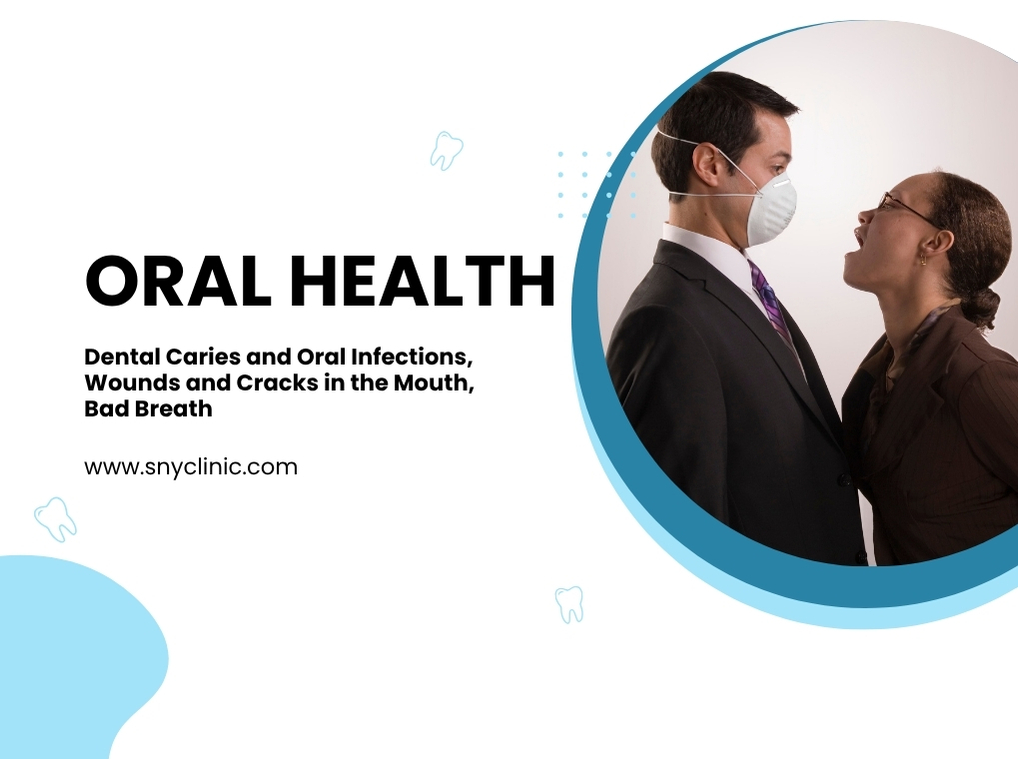
What Does Chronic Dry Mouth Cause?
What Does Chronic Dry Mouth Cause?
Dry mouth, medically known as xerostomia, is a condition that many people occasionally experience. However, when this dryness becomes chronic — that is, long-lasting and persistent — it becomes more than just a minor inconvenience; it can lead to serious problems affecting both oral health and quality of life. In this article, we will explore in detail the problems that chronic dry mouth can cause, its symptoms, and ways to prevent it.
What Is Dry Mouth?
Dry mouth is a condition that occurs when saliva production decreases or when saliva is not secreted as it should be. Saliva plays a vital role in everything from starting digestion to maintaining the oral microbiome. Therefore, insufficient saliva production negatively affects both oral and overall health.
Problems Caused by Chronic Dry Mouth
Although chronic dry mouth may seem like a simple 'dehydration' issue, it can lead to a series of chain reactions in the body. Here are the main health problems it may cause:
1. Tooth Decay and Oral Infections
Saliva protects the teeth and gums by cleaning out bacteria in the mouth. However, a lack of saliva disables this natural defense mechanism, which can lead to the following problems:
• Weakening of the tooth enamel
• Rapid progression of tooth decay
• Bad breath
• Gum inflammation (gingivitis)
• Oral fungal infections (especially Candida Albicans)
2. Difficulty in Speaking and Swallowing
Dry mouth, due to the loss of saliva’s lubricating effect, can make speaking and swallowing difficult. This negatively affects social life:
• Difficulty in pronouncing words clearly
• A feeling of dryness or irritation in the throat
• Difficulty chewing and swallowing solid foods
• A burning sensation while swallowing
3. Diminished Sense of Taste
Saliva helps dissolve taste molecules, facilitating the sense of taste. Dryness hinders this process, leading to:
• Decreased sense of taste
• Reduced enjoyment from food
• Loss of appetite
4. Bad Breath (Halitosis)
Saliva deficiency allows bacteria to accumulate in the mouth. These bacteria produce compounds that cause bad odor. As a result, chronic dry mouth may lead to:
• Persistent bad breath
• Loss of self-confidence in social interactions
5. Sores and Cracks in the Mouth
People with dry mouth often experience cracks at the corners of the lips, a burning sensation on the tongue, and small sores in the mouth. These can cause pain, especially during speaking and eating.
6. Difficulty Using Dentures
In denture users, saliva helps the prosthetic fit better in the mouth. Dryness causes friction between the denture and the oral tissue, leading to:
• Injuries
• Inflammation
• Poor denture fit
Possible Causes of Chronic Dry Mouth
There are many potential causes of chronic dry mouth. Some of the most common include:
• Medication use: Antidepressants, antihistamines, blood pressure drugs, and diuretics often have dry mouth as a side effect.
• Systemic diseases: Conditions like diabetes, Sjögren's syndrome, Parkinson’s, and Alzheimer’s can affect the salivary glands.
• Radiotherapy and chemotherapy: Especially treatments directed at the head and neck can damage salivary glands.
• Insufficient water intake: Overall dehydration reduces saliva production.
• Smoking and alcohol use: These disrupt the moisture balance in the mouth.
Chronic dry mouth is not just a discomfort—it can significantly affect your oral health and overall quality of life if left untreated. From tooth decay to infections, speech difficulties to social insecurity, it can result in serious consequences in many areas. With early precautions and lifestyle changes, the impact of this condition can be minimized.
Remember, a healthy mouth is not just about a beautiful smile; it’s also a reflection of your general health.
If dry mouth persists for several days and leads to the issues mentioned above, it is essential to consult a dentist. Proper diagnosis is crucial for a permanent solution.




